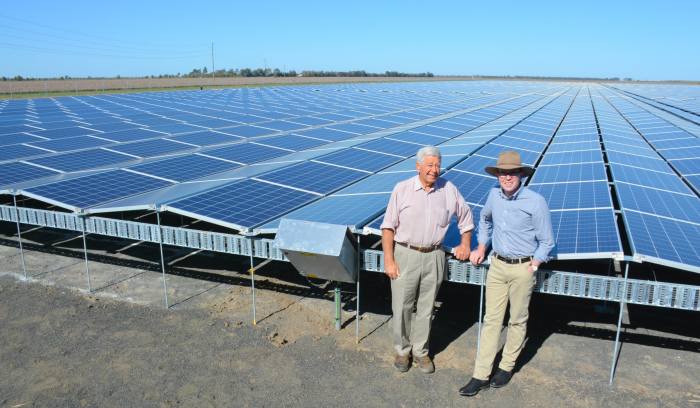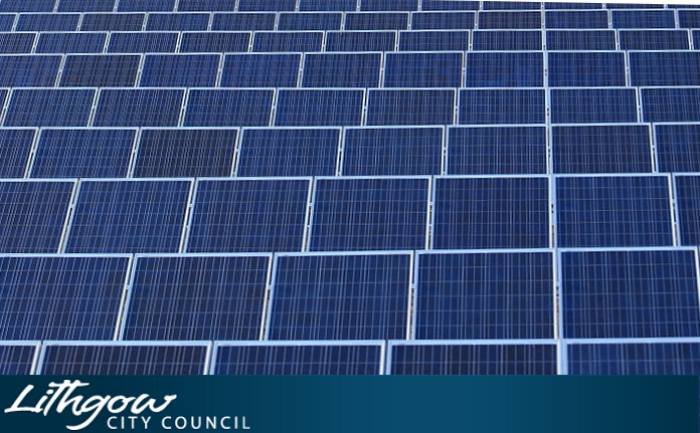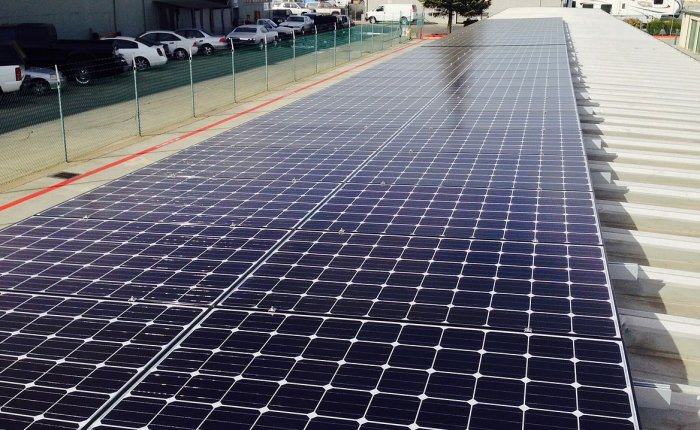
Tesla Solar Roof in the wild | Image: Tesla
Tesla has begun installing its Solar Roof product and the company seems to be making rapid progress on its South Australian battery project.

Tesla Solar Roof in the wild | Image: Tesla
Tesla has begun installing its Solar Roof product and the company seems to be making rapid progress on its South Australian battery project.

Solar powers on in Boggabilla | Image source: Adam Marshall
Boggabilla, a small town in the far north of inland New South Wales, has been put on the map with a recently completed privately funded solar farm.

A bigger role for solar in Lithgow’s future? | Solar panels image : Lujkin8, CC BY-SA 3.0
If the Mayor of Lithgow in New South Wales has his way, solar panels could soon be installed on the Lithgow City Council building rooftop. It’s big news, as the city is in the heart of coal country.

Removing barriers to commercial solar uptake in South Australia | Image: Roofjockey, CC BY-SA 4.0
New regulations now in effect in South Australia could help boost the number of solar power systems installed on tenanted commercial buildings throughout the state.

Shell eyeing Asia-Pacific solar market
Shell has sunk a chunk of change in Singapore’s Sunseap Group, with view to collaborating with the company on solar projects in the Asia Pacific.
Financial services goliath JPMorgan Chase has said it will source 100% renewable energy to run its global operations by 2020.
U.S. tech firm X is working on technology it says could compete on price with other current energy storage methods – and it’s approaching commercial prototype stage.
Japan’s Eco Marine Power is preparing for sea trials next year of a rigid sail and solar power system designed for use on bulk carriers.
Touting it as the solar car for everyone, Munich’s Sono Motors unveiled a fully functional prototype of its Sion electric vehicle last week.
A new report says health costs associated with fossil fuel use in G20 countries are more than six times higher than the substantial subsidies the oil, gas and coal sectors receive.
Get up to 3 free solar quotes
✓ Solar ✓ Batteries ✓ EV Chargers
Before You Go..Download the first chapter of The Good Solar Guide, authored by SolarQuotes founder Finn Peacock, FREE! We respect your privacy and you can opt out from the newsletter at any time. |



Currently Raging Debates: